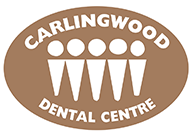Improve Nutrition
Though regular, daily brushing, and flossing are essential for maintaining a healthy smile, did you know that your diet also plays a major role in your oral health too? If you tend to eat lots of processed foods, starches, sugar, and acidic items, then your teeth and gums will suffer. This combination can wreak havoc in the mouth, allowing bacteria to thrive while increasing your chances of developing tooth decay, infections and disease.
For optimum oral health, it’s important to include nutrient-rich foods into your daily meals that will benefit your teeth and gums, as well as your overall health. A nutritious and well-balanced diet should incorporate a combination of veggies, fruits, grains, and protein. A meal plan can make it easier to ensure you’re getting in enough nutrients while avoiding the temptation of snacking on junk food.
Some key foods to add to your meals:
Foods Rich in Calcium: Yogurt, milk, soy milk, tofu, salmon, almonds, and dark leafy greens.
Foods Rich in Vitamin C: Orange, kiwi, grapefruit, broccoli, cauliflower, peppers, tomatoes, spinach, and potatoes.
Foods Rich in Phosphorus: Nuts, beans, eggs, fish, and lean meat.
Stay Hydrated
Are you drinking enough water? If not, this could also impact your oral health. Water helps to create more saliva, which prevents dry mouth. Saliva is needed to defend your teeth against decay. It also contains important minerals like calcium and phosphorus, which benefit your teeth. Sipping on water will flush away food particles that get left behind in the mouth as well.
Dental Cleanings & Check-Ups
Keeping your teeth and gums healthy requires regular visits and check-ups with your dentist. Check-ups are a fundamental part of maintaining your overall health. During each appointment, your dentist will inspect your mouth for any potential signs of trouble, including decay, infection, disease or oral cancer. If they notice anything, they will recommend treatment as needed before any issues can escalate into something serious. During your cleaning, the dentist or dental hygienist will remove plaque and any built-up tartar that is difficult to remove when using a regular toothbrush. They’ll finish up by polishing the teeth or using a fluoride solution which helps prevent and even reverse early signs of tooth decay.
Make sure to visit your dentist at least every six months or when they recommend a visit. The frequency could change based on the condition of your oral health.


